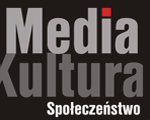This article considers the increased interest of editors of entertainment magazines aimed at women in the esoteric subject of magic and witches. Reports and reportages in magazines mainly contain statistical data showing how many Poles believe in horoscopes and use the services of fortune-tellers. Data on the value of the esoteric market, which includes astrologers, clairvoyants, numerologists and diviners, show the demand for services even on the Internet. These magazine articles are often illustrated with graphics potraying tarotists, the glass balls of fortune-tellers, spiritualist seances and even futuristic elements, indicating the paradoxical attitude of the modern-day individual – equally fascinated by technical novelties and by the the results of fortune-telling. Psychologists who consult on this subject indicate that neurotics are open to the influence of fortune-tellers and are often unaware of this. The need to feel in control arises from fear of a world full of variables. Among clairvoyants there are fraudsters. However, the presented stories of readers do not constitute a warning. Interviews with celebrities (Violetta Koseska, Katarzyna Bonda) suggest a correlation of the world of esoterics with science and literature. Although the history of witch-hunts is one of interrogation, torture and stocks, today divination and spell-casting constitute a lucrative profession, taxed even. Most of the reports analysed were published in November 2015, but language related to magic continues to appear, especially in fashion and beauty columns. Esotericism in popular culture affects opinions and linguistic expressions in colloquial use, ipso facto providing an interesting field of research on many levels.
Keywords: divination, witches, esoterics, women's press, fashion, psychological manipulation
